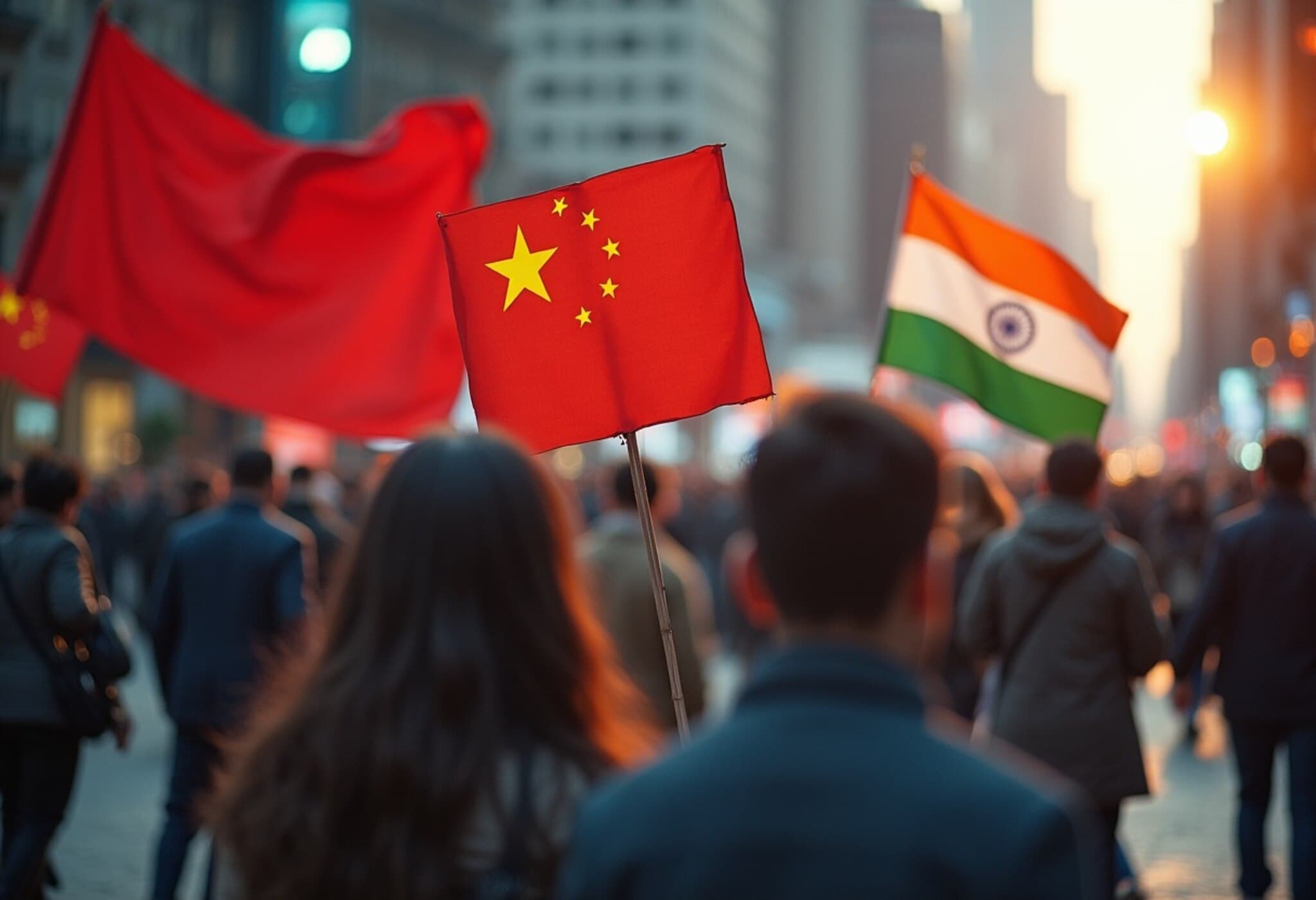China’s Exit Bans Spark Anxiety Among Western Corporations
In recent months, the practice of exit bans imposed by Chinese authorities has ignited new waves of concern among multinational companies operating within the country. These exit bans—restrictions that prevent individuals from leaving China—have long been a tool used by Beijing, especially against those involved in commercial disputes or with family ties in China. However, recent high-profile cases involving American citizens have intensified fears surrounding travel safety and business continuity in China.
Two notable U.S. nationals, including a federal employee and a senior Wells Fargo executive, have been barred from exiting China, highlighting a troubling escalation in the enforcement of these exit bans. According to John Kamm of the Dui Hua Foundation, more than 50 such cases may currently be active, predominantly tied to civil or commercial conflicts, with new instances frequently emerging.
The Wells Fargo Incident: A Wake-up Call for Global Business
The detention of Chenyue Mao, a U.S. citizen and managing director at Wells Fargo specializing in international factoring, has become emblematic of the growing unpredictability foreign businesses face in China. Born in Shanghai but a naturalized American, Mao was prevented from leaving China following a recent business trip—without clear explanation. Wells Fargo’s immediate suspension of staff travel to China underscores the gravity of the situation and reflects the wider apprehension rippling through multinational firms.
Mao’s case highlights how even seasoned professionals, well-versed in China’s complex trade environment, are vulnerable. The absence of transparent legal processes and the opacity surrounding the reasons for such exit bans cast a shadow over the reliability of operating in China.
Corporate and Diplomatic Ripples
Across corporate boardrooms, risk assessments are undergoing a fundamental shift. Many Western companies are advising employees against solo or leisure travel to China and reconsidering the extent of their physical presence within the country. The U.S. State Department has reinforced travel advisories, cautioning American citizens about arbitrary law enforcement in China, including exit restrictions.
Diplomatic exchanges between U.S. and Chinese officials have intensified, with the Biden administration pressing for the prompt release of stranded American citizens. Yet, mixed signals from Beijing complicate the landscape. While Chinese officials publicly reaffirm their commitment to protecting foreign nationals and foreign investment, their continued use of exit bans undercuts these assurances.
China’s Legal Ambiguity Creates a Climate of Unease
The crux of the issue lies in China’s opaque legal system and its stance on nationality. Particularly for ethnic Chinese with foreign citizenship—including naturalized Americans—Beijing treats them as Chinese nationals, thereby exerting additional control through family ties. This legal ambiguity presents a unique challenge as businesses grapple with the potential for politically motivated actions disguised as legal measures.
These developments mark a significant erosion of trust among foreign investors. The unpredictability of Chinese governance mechanisms threatens operational continuity, casting doubt over China’s status as a secure global business hub. The implications extend to tech, finance, manufacturing, and pharmaceutical sectors, all heavily reliant on seamless cross-border exchanges.
India Emerges as a Strategic and Stable Alternative
Amid increasing uncertainty in China, India’s appeal as an alternative business destination is rapidly growing. India boasts a more transparent legal framework, a democratic governance system, and burgeoning economic reforms that foster investor confidence. Initiatives like Make in India and extensive production-linked incentive (PLI) programs have actively encouraged multinational corporations to diversify their regional footprints.
India’s advantage goes beyond economic metrics:
- Rule of Law: An independent judiciary and transparent legal protections for foreign investors mitigate risks of arbitrary detentions.
- Political Stability: Stable diplomatic ties with Western powers, including the United States and the European Union, reinforce India’s credibility as a trusted partner.
- Human Capital: A skilled and growing workforce ready to meet the demands of high-tech and manufacturing industries.
Major corporations such as Apple, Google, and Microsoft have ramped up investments in Indian hubs like Bengaluru and Hyderabad, reflecting a deliberate shift from a China-centric model to a “China-plus-one” strategy that hedges geopolitical risks.
Beyond Cost: The Geopolitical Calculus
While cost efficiency has historically driven supply chain decisions, the recent exit ban controversies underline the growing importance of geopolitical resilience. Firms are no longer willing to tolerate reputational hazards or operational interruptions stemming from opaque governance and politicized legal actions.
India’s growing stature as a global technology and manufacturing hub promises a more predictable and secure environment. For companies balancing growth ambitions with risk mitigation, India offers a compelling blend of scale, stability, and strategic partnership.
The Road Ahead: A Rebalancing of Asia’s Economic Landscape
The detainment of American professionals in China signals a pivotal moment, forcing corporations and governments alike to reassess their engagement strategies in Asia. Beijing’s dual approach—emphasizing economic openness while exercising tight regulatory controls—risks alienating the international community essential to its growth.
Conversely, India’s transparent policies, democratic institutions, and commitment to strengthening rule of law make it an increasingly attractive destination for multinationals recalibrating their regional exposure. This shift not only marks a strategic realignment but also hints at a new economic center of gravity within Asia.
Editor’s Note
The emerging trend of exit bans in China serves as a powerful reminder of the intricate interplay between geopolitics, legal frameworks, and global business operations. As multinational corporations grapple with growing uncertainties in China, India stands out as a beacon of stability and opportunity. However, the challenge remains for India to sustain and deepen reforms to fully capture this moment. For policymakers and business leaders, the essential question is whether India can consolidate its gains and emerge as a trustworthy long-term hub amid an evolving and often turbulent geopolitical landscape.













